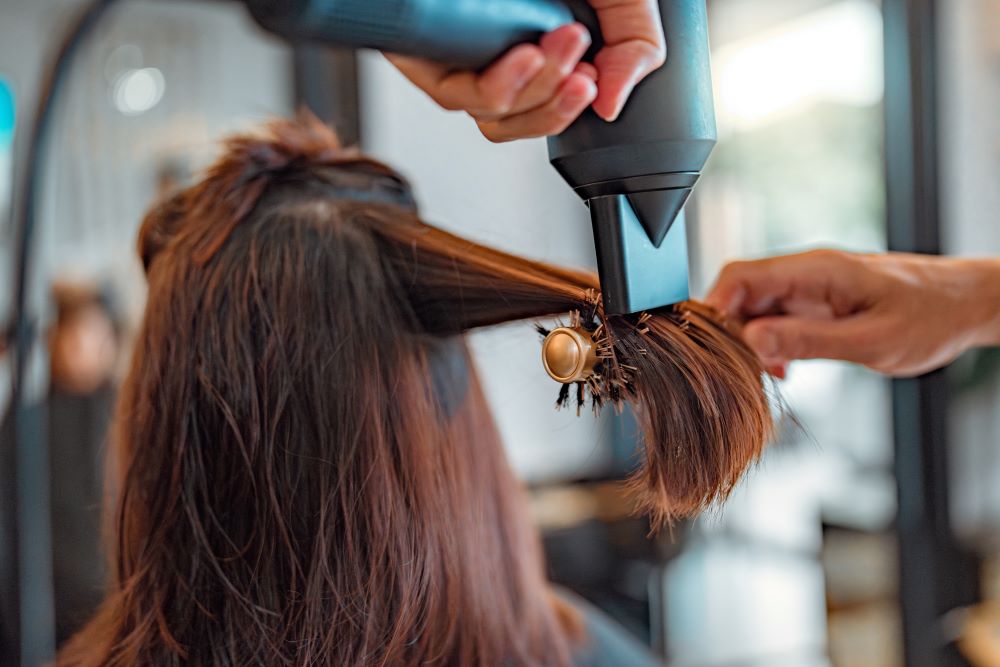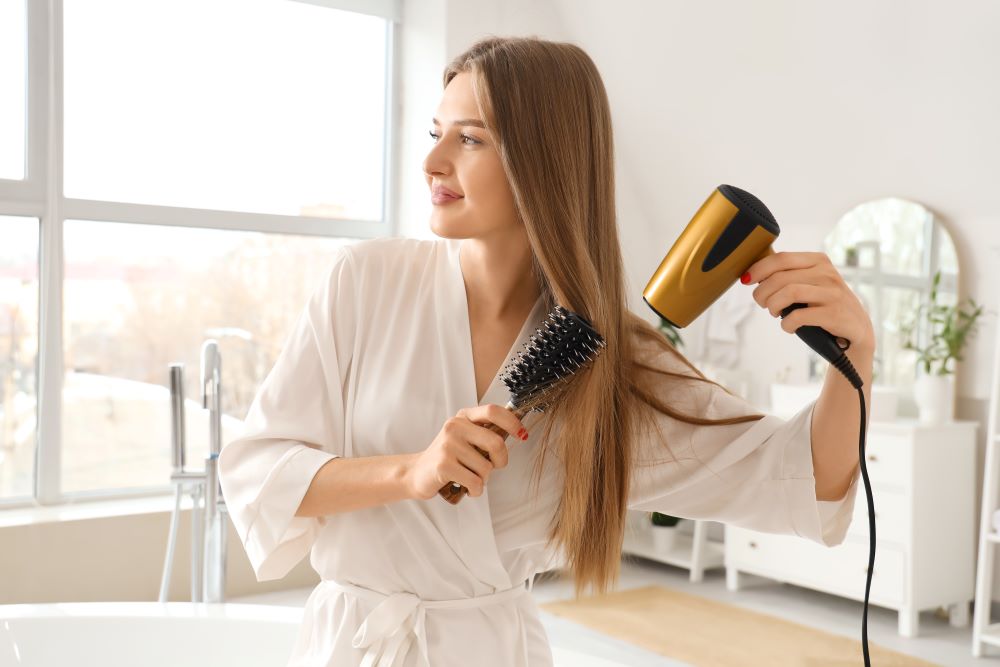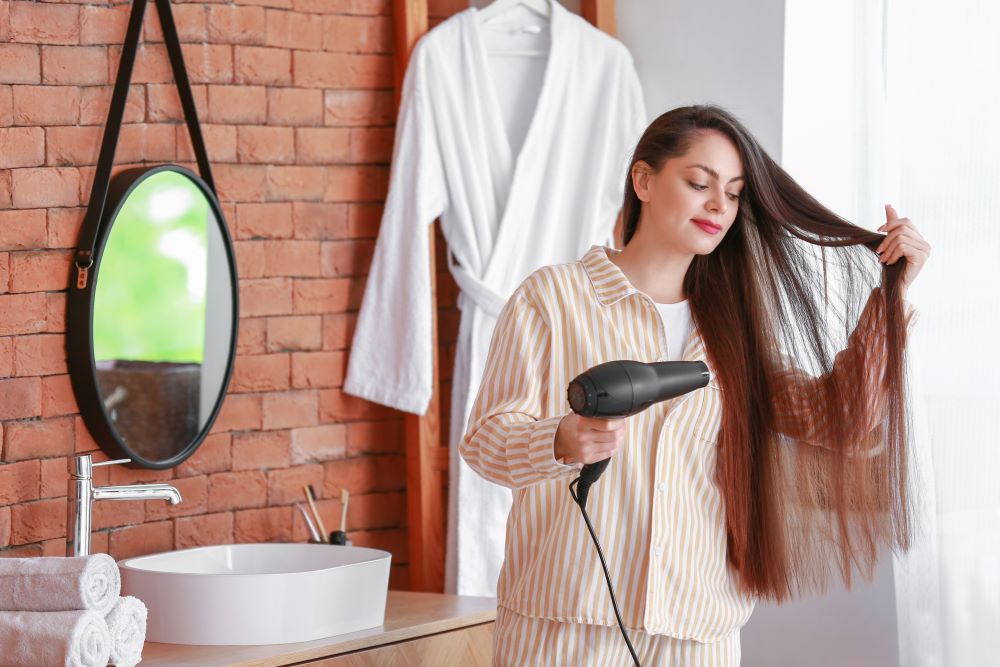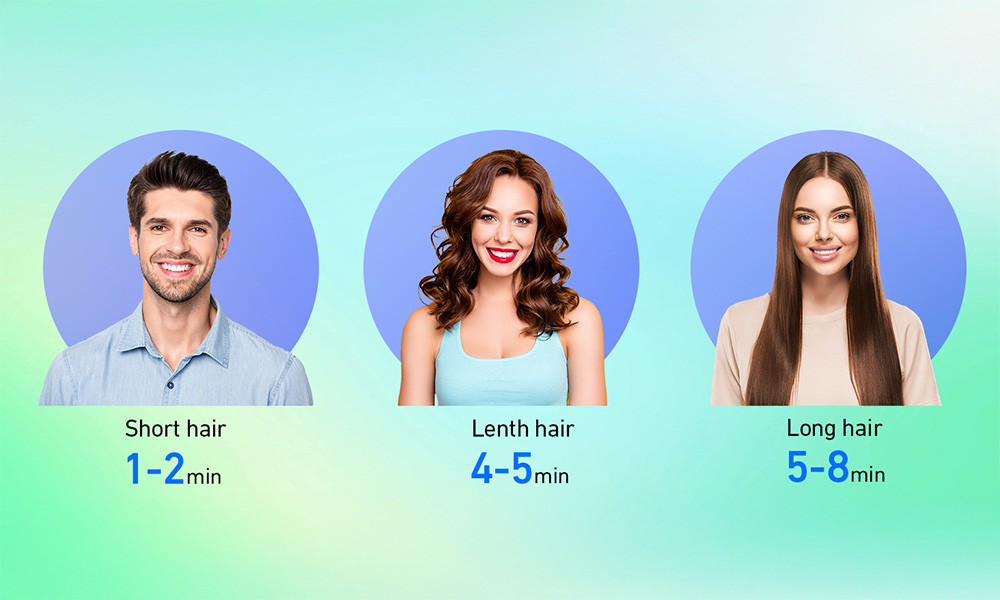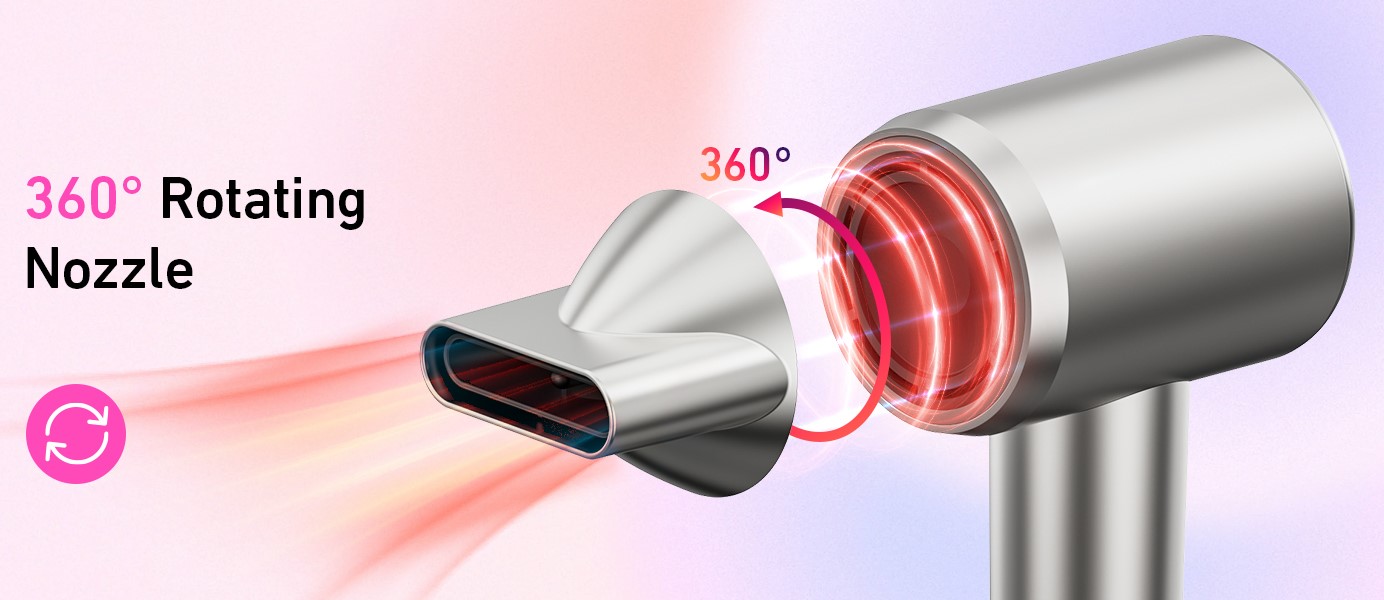
- Home
- Hair Dryer
- Comparisons
- Professional vs. Home Hair Dryers: What’s the Difference?
Professional vs. Home Hair Dryers: What’s the Difference?
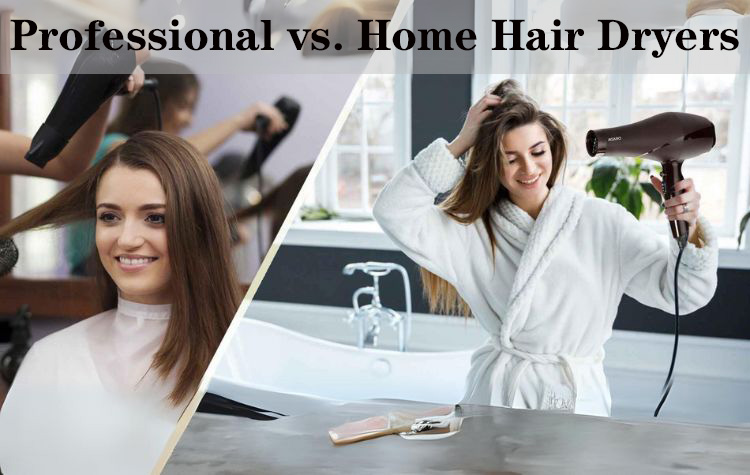
Hair dryers are an essential tool for both salons and homes. However, when it comes to choosing the right hair dryer, many customers wonder about the differences between professional and home hair dryers. Are professional models worth the extra cost? What features set them apart? This comprehensive guide will explore the key differences between professional and home hair dryers, helping you make an informed decision.
1. Understanding the Basics: What Are Hair Dryers?
Hair dryers, also known as blow dryers, are devices used to blow cool or hot air over wet or damp hair to accelerate the evaporation of water, thus drying the hair. They come in various models, sizes, and with different features, making them suitable for diverse needs ranging from casual home use to professional salon settings.
2. Defining Professional vs. Home Hair Dryers
To begin, let’s define what is meant by “professional” and “home” hair dryers:
Professional Hair Dryers: These are typically used in salons by hairstylists. They are designed for frequent use and are often more durable, powerful, and equipped with advanced technologies to cater to various hair types and styles. Professional hair dryers are built to handle multiple clients throughout the day.
Home Hair Dryers: These are designed for personal use. While they can vary in quality and features, home hair dryers generally do not require the same level of durability or power as professional models. They are usually more affordable and have features that cater to everyday hair drying needs.
3. Key Differences Between Professional and Home Hair Dryers

Understanding the key differences between professional and home hair dryers will help you make a more informed decision. Here’s a breakdown of the most significant factors:
Motor Type and Power
Professional Hair Dryers: Typically equipped with AC (alternating current) motors, professional hair dryers provide more power and have a longer lifespan compared to DC (direct current) motors found in most home dryers. AC motors are also heavier, making the dryers sturdier and better suited for prolonged use.
Home Hair Dryers: Generally come with DC motors, which are lighter and less expensive but also less durable and less powerful than AC motors. DC motors are suitable for occasional use but may not withstand the rigorous demands of a professional setting.
Heat and Speed Settings
Professional Hair Dryers: Offer multiple heat and speed settings to accommodate various hair types and styling techniques. These dryers often have at least three heat settings (low, medium, high) and two or more speed settings (low, high). Some professional models even include a cool shot button to help set styles and reduce frizz.
Home Hair Dryers: Usually have fewer heat and speed settings, typically one to three. These models are designed for basic hair drying and styling needs. While some home dryers also offer a cool shot button, the range of settings is generally more limited than professional dryers.
Temperature Control and Heat Distribution
Professional Hair Dryers: Feature advanced temperature control and heat distribution technologies, such as ceramic, tourmaline, and ionic technologies, to ensure even heat distribution and prevent hot spots that can damage hair. These technologies help reduce frizz and enhance shine, providing a healthier drying experience.
Home Hair Dryers: May or may not have advanced heat control technologies. Many basic models rely on simple metal or plastic heating elements, which can result in uneven heat distribution and potential damage to the hair if not used carefully.
Weight and Ergonomics
Professional Hair Dryers: Are designed with ergonomics in mind, as hairstylists use them for extended periods. They are usually balanced to reduce strain on the wrist and arm. While professional dryers may be heavier due to their more powerful motors, their ergonomic design helps prevent fatigue.
Home Hair Dryers: Tend to be lighter and less ergonomically designed since they are intended for shorter, less frequent use. However, some models are designed with user comfort in mind, featuring lightweight materials and a comfortable grip.
Durability and Longevity
Professional Hair Dryers: Built to withstand heavy daily use, professional dryers are constructed from high-quality materials. They often have a lifespan of several years, even with constant use. Professional models are also backed by more comprehensive warranties, reflecting their higher build quality.
Home Hair Dryers: Generally have a shorter lifespan due to lower-quality materials and less robust construction. They are designed for personal, occasional use and may not last as long as professional models, especially with frequent use.
Attachments and Accessories
Professional Hair Dryers: Come with a range of attachments, such as diffusers, concentrators, and combs, to cater to different hair types and styles. These attachments are typically of higher quality, designed to withstand high heat and prolonged use.
Home Hair Dryers: May come with one or two basic attachments, but the quality and variety are often less than those provided with professional models. Some home dryers do not come with any attachments at all.
4. Technologies in Hair Dryers: What Makes Professional Hair Dryers Stand Out?
Ionic Technology
Ionic technology is a key feature in many professional hair dryers. It works by emitting negative ions that break down water molecules in the hair, reducing drying time and preventing frizz. This technology is especially beneficial for thick or curly hair types, as it helps achieve a smoother, shinier finish.
Professional Models: Typically have stronger ionic generators, providing more effective frizz control and shine enhancement.
Home Models: May include ionic technology, but the generators are usually weaker, offering less frizz control and shine.
Ceramic and Tourmaline Technology
Ceramic and tourmaline are materials used in the heating elements of hair dryers to ensure even heat distribution and reduce damage.
Professional Hair Dryers: Often feature ceramic and tourmaline heating elements, which provide consistent, gentle heat that helps to protect hair from damage and maintain its natural moisture.
Home Hair Dryers: Some home models also feature these technologies, but the quality and effectiveness can vary widely.
Infrared Heat
Infrared heat is a technology used in some professional hair dryers to penetrate the hair shaft and dry the hair from the inside out. This method is less damaging than conventional heat, as it dries the hair more gently and evenly.
Professional Hair Dryers: May incorporate infrared technology, which is beneficial for reducing drying time and minimizing heat damage.
Home Hair Dryers: Rarely feature infrared technology due to the additional cost and complexity.
5. Price Differences: What Should You Expect to Pay?
The price difference between professional and home hair dryers can be significant, and it’s essential to understand what you are paying for:
Professional Hair Dryers: Prices typically range from $100 to $400, depending on the brand, model, and included technologies. High-end models, such as the Dyson Supersonic, can even exceed this range. The higher price reflects the superior build quality, powerful motors, advanced technologies, and longer lifespan.
Home Hair Dryers: Prices generally range from $20 to $100, making them more affordable for the average consumer. While there are higher-end home models with advanced features, they still tend to be more affordable than professional counterparts.
6. Who Should Use Professional Hair Dryers?

Professional hair dryers are ideal for:
Hair Salons and Stylists: The durability, power, and versatility of professional dryers make them perfect for salon environments. They can handle frequent use and offer the performance needed for various styling techniques.
Individuals with Specific Hair Needs: People with thick, curly, or coarse hair may benefit from the higher power and advanced technologies of professional hair dryers. These models can reduce drying time and minimize frizz, leading to smoother, shinier results.
At-Home Styling Enthusiasts: If you frequently style your hair at home and want salon-quality results, investing in a professional hair dryer can be worthwhile. The additional features and settings provide more control over styling and help protect hair from damage.
7. Who Should Use Home Hair Dryers?
Home hair dryers are suitable for:
Casual Users: If you only dry your hair occasionally or for basic styling, a home hair dryer is sufficient. These models are more affordable and provide the basic functions needed for everyday use.
Travelers: Lightweight and compact home hair dryers are ideal for travel. Many models are designed to be foldable or include dual voltage options, making them convenient for use on the go.
Budget-Conscious Consumers: For those who do not want to invest in a high-end professional model, home hair dryers provide a more economical option without sacrificing essential functionality.
8. Latest Trends in Hair Dryers: What’s New in 2024?
The hair dryer market is constantly evolving, with new technologies and features introduced to enhance the drying experience. Here are some of the latest trends in hair dryers for 2024:
Digital Motors: Digital motors, found in some high-end professional hair dryers, are lighter, faster, and more efficient than traditional motors. They offer precise control over airflow and temperature, resulting in faster drying times and less heat damage. Digital motors also tend to be quieter, providing a more comfortable experience for both the user and client.
Smart Hair Dryers: Smart hair dryers are becoming more popular, equipped with sensors that monitor hair moisture levels and adjust heat and airflow accordingly. This technology helps prevent over-drying and heat damage, ensuring optimal styling results. Some smart dryers also connect to apps, allowing users to customize settings and track usage.
Eco-Friendly Hair Dryers: As consumers become more environmentally conscious, eco-friendly hair dryers are gaining traction. These models use less energy and are often made from sustainable materials. Some even feature biodegradable components, making them a more sustainable choice for eco-minded consumers.
Cordless Hair Dryers: Cordless hair dryers are a recent innovation, offering greater flexibility and convenience. These models are battery-operated, eliminating the need for a power cord. While cordless dryers are not as powerful as their corded counterparts, they are ideal for quick touch-ups and travel.
9. How to Choose the Right Hair Dryer for Your Needs
When choosing between a professional and home hair dryer, consider the following factors:
Hair Type and Styling Needs
Thick, Curly, or Coarse Hair: If you have thick, curly, or coarse hair, a professional hair dryer with higher wattage and advanced technologies may be beneficial for reducing frizz and achieving smoother results.
Fine or Thin Hair: For fine or thin hair, a home hair dryer with adjustable heat settings and a lower wattage may be sufficient to prevent heat damage and breakage.
Frequency of Use
Frequent Use: If you use a hair dryer daily or for extended periods, a professional model’s durability and performance will provide better long-term value.
Occasional Use: For occasional use, a home hair dryer will likely meet your needs without requiring a significant investment.
Budget Considerations
Higher Budget: If budget is not a concern, investing in a professional hair dryer can offer better performance, longevity, and versatility.
Lower Budget: If you are looking for an affordable option, there are many high-quality home hair dryers available that provide excellent value for money.
10. Maintenance and Care: Extending the Life of Your Hair Dryer
Proper maintenance and care can extend the lifespan of your hair dryer, whether professional or home. Here are some tips to keep your dryer in top condition:
Regular Cleaning
Clean the Filter: Hair dryers have filters to prevent dust and debris from entering the motor. Regularly clean or replace the filter to ensure optimal airflow and prevent overheating.
Wipe Down the Exterior: Use a damp cloth to wipe down the exterior of the hair dryer, removing any product residue or dust.
Avoid Overheating
Use Appropriate Settings: Avoid using the highest heat and speed settings for extended periods, as this can cause the motor to overheat and reduce its lifespan.
Allow for Cool Down: After using the hair dryer, allow it to cool down before storing it. This helps prevent damage to the internal components.
Store Properly
Avoid Tangles: When storing your hair dryer, avoid wrapping the cord tightly around the handle, as this can cause the cord to wear out and become damaged.
Keep in a Safe Place: Store your hair dryer in a safe, dry place where it won’t be exposed to water or knocked over.
11. Conclusion: Making the Right Choice for Your Hair Care Needs
Choosing between a professional and home hair dryer ultimately depends on your specific needs, budget, and preferences. Professional hair dryers offer advanced technologies, durability, and performance, making them ideal for salons, frequent use, or those with specific hair needs. Home hair dryers, on the other hand, provide a more affordable option for everyday use and occasional styling. By considering your hair type, styling needs, and budget, you can find the perfect hair dryer to help you achieve your desired look while maintaining the health of your hair.
12. FAQs: Answering Common Questions
To further assist in your decision-making process, here are some frequently asked questions about professional and home hair dryers:
Q1. Are professional hair dryers really worth the extra cost?
A1. If you have specific hair needs, style frequently, or desire salon-quality results at home, investing in a professional hair dryer may be worth the cost due to its advanced features, durability, and performance.
Q2. Can a home hair dryer deliver salon-like results?
A2. While home hair dryers can deliver good results, they may lack the power, heat control, and technologies found in professional models that contribute to the smooth, shiny finishes achieved in salons.
Q3. What is the average lifespan of a hair dryer?
A3. The lifespan of a hair dryer varies based on its quality, usage, and maintenance. Professional hair dryers typically last 5-10 years, while home hair dryers may last 2-5 years with regular use and proper care.
Popular Post

Ultimate Guide to Using a Hair Dryer with Nozzle for Styling
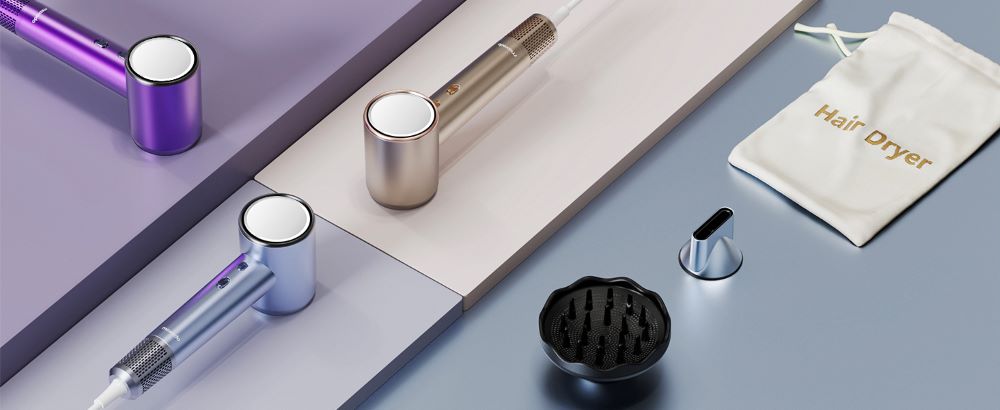
The Benefits of Using a Hair Dryer with a Diffuser
